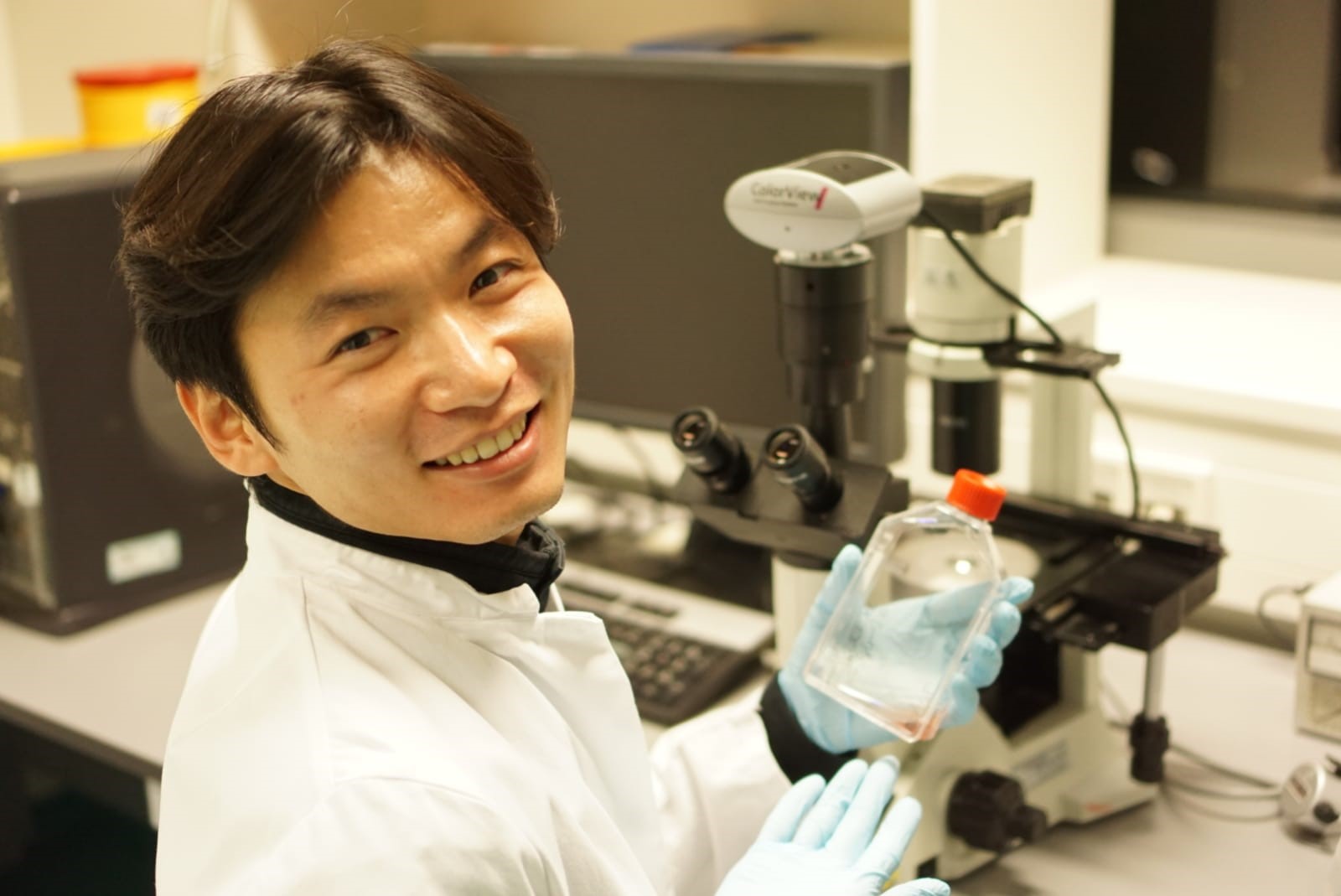EBMT 2022 Annual Meeting - Best Young Abstracts
GS4 Closing Session - Wednesday, March 23, 13:45 - 14:30 CET, Virtual Hall 1
This year, EBMT has given 10 special awards for the best abstracts submitted for oral presentations, and 5 special awards for the best abstracts submitted for poster presentations at this year’s online congress.
The prize-winning abstracts were selected from the top-scored abstracts submitted by young physicians (aged under 35 years). Each awardee will receive a €500 prize.
Sadly, there is not enough space in this article to highlight all of our 15 winners, however here we meet two of them and find out more about their studies.
One of the ten oral presentation winners:
Dr Amanda Pérez, Medical Doctor at Hospital Clinic of Barcelona, Spain
For full abstract see: OS05-01 INCREASED EARLY CARDIAC TOXICITY IN PATIENTS UNDERGOING ALLOGENEIC HEMATOPOIETIC CELL TRANSPLANTATION COMBINED WITH POST-TRANSPLANT CYCLOPHOSPHAMIDE
Q: Congratulations on your award Amanda. Why did you decide to do this study?
A: We decided to do this study because of the increasing use of post-transplant cyclophosphamide (PTCy) independently of the selected donor source and the well-known cardiac toxicity of cyclophosphamide. At our institution we have experienced some cardiac events in the subgroup of patients that received PTCy based GVHD prophylaxis, so we wanted to explore the impact of PTCy in early cardiac toxicity.
Q: What were the main findings?
A: We found that early cardiac toxicity was relatively infrequent and heart failure and arrythmias were the most common events. We also found that risk factors to develop early cardiac toxicity after alloHCT included PTCy containing GVHD prophylaxis, history of hypertension and prior history of cardiac disease. We explored EASIX score as a risk factor as well, and we found that EASIX when calculated based on the bloodwork done in the pre-transplant evaluation was a predictor of early cardiac toxicity.
Q: What are the implications for the findings, and will you be following up the study?
We hope that our findings promote further investigation on the topic and to subsequently be able to identify a subgroup of patients that are at greater risk of early cardiac toxicity before alloHCT combined with PTCy GVHD prophylaxis - and therefore be able to propose prophylactic measures/interventions (for example, a cardiology consultation before alloHCT). We will be following up our study, currently adding new variables to our database and updating information.
Thanks Amanda and enjoy this year’s EBMT!
One of the five poster presentation winners:
Hao Yao, Department of Internal Medicine V, University Clinic Heidelberg, Heidelberg University, Heidelberg, Germany
For full abstract see: P079 ENHANCEMENT OF LONG-TERM FUNCTIONALITY OF CD19 CAR-T CELLS BY OVEREXPRESSION OF TCF-1
Q: Congratulations Hao, and tell us about yourself?
A: Since October 2019 I joined in the PhD program held by Prof. Dr. Michael Schmitt in the University Clinic Heidelberg and work in his Cellular Immunotherapy Lab. I hold a Masters in the Traditional Chinese Medicine from Nanjing University of Chinese Medicine (China) and a doctoral license for Traditional Chinese Medicine. I have finished the National Standardised Training for resident doctors.
Q: Why did you decide to do this study?
A: Chimeric antigen receptor CAR T-cells demonstrate impressive clinical response rates in B cell malignancies, but less than 50% of patients experience long-term disease control. Moreover, CAR T-cells have not mediated sustained responses in solid tumors. Intrinsic T cell exhaustion has been increasingly incriminated as a cause of CAR T-cell dysfunction, raising the prospect that engineering exhaustion-resistant CAR T-cells could improve clinical outcomes. The transcription factor T cell factor 1 (TCF-1) is crucial for positive regulation of T cell development and maturation. Several studies have showed its important role in maintaining the function of virus specific T cell in chronic infection models. Therefore, overexpression of TCF-1 might improve the long-term functionality of CAR-T cells.
Q: What are the main findings?
A: We successfully established a double transduction system with retroviral constructs, showing that the double transduction efficiency was over 50%. When compared to single transduced CAR T-cells, a greater expansion of double transduced CAR T (DT.CAR T)-cells was observed in the generation process, which is contributed by a downregulation of pro-apoptotic proteins. Of note, DT.CAR T-cells exhibit a superior functionality in a changeling assay, showing an improved T-cell proliferative function, a sustained killing ability evidenced by an increased number of challenge times and residual tumour cell number, as well as a less exhaustion supported by a reduced expression of inhibitory receptors (PD-1, Tim-3 and Lag3).
Q: What are the implications for the findings, and will you be following up the study?
A: Optimisation of CAR T-cells via an overexpression of TCF-1 could dramatically improve the persistence of CAR T-cells in order to overcome the exhaustion, thereby increasing a long-term clinical response rate, which brings more benefits to patients.
Based on the current findings, firstly we would like to confirm the universality of overexpression of TCF-1 improving the long-term functionality by using different CAR models. Secondly, we would like to discover the mechanism in transcriptional and post-transcriptional levels by performing advanced sequencings. Last, but not least, the safety and efficacy of DT.CAR T-cells should be tested in in vivo animal models.
Q: What other projects are you involved in at the moment?
A: Besides this project, I am also involved in another interesting project to establish a 3D culture system for CAR T-cells.
I would also like to gratefully acknowledge the funding source Chinese Government Scholarship that makes my doctoral work possible. I deeply appreciate my doctoral ‘father’ Prof. Dr. Michael Schmitt for providing me the opportunity to study in his great lab and providing me these very interesting projects. Special thanks to my supervisor Dr. Lei Wang for his wonderful guidance and support.

Department of Internal Medicine V, University Clinic Heidelberg, Heidelberg University, Heidelberg, Germany